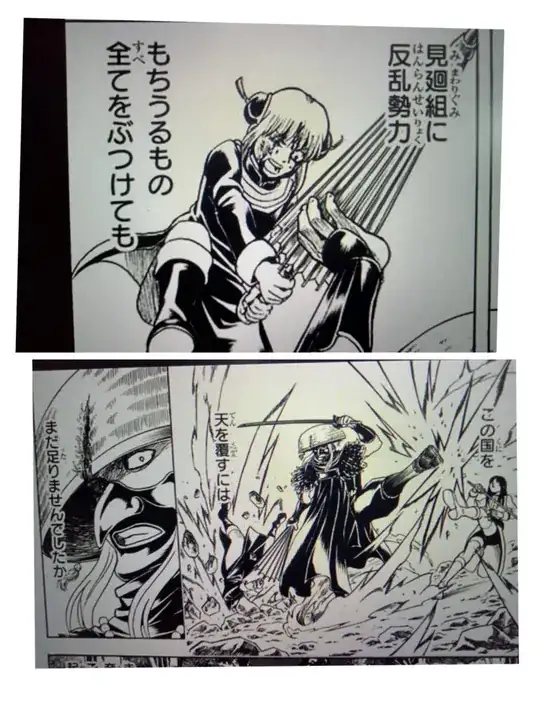I am really confused on how to translate もちうるもの全て in the first manga panel. I tried pasting it into some online translators and it said something like "everything that can be used" but shouldn't it be 全てのもちうるもの if that's the case? So what does もちうるもの全て actually mean and how does it fit to the whole sentence?
Edit: Ok, I think I understand now how もちうるもの全て grammatically works. But I'm still a bit confused how does もちうるもの全て works together with the sentence before it (見廻組に反乱勢力) grammatically and how to translate it.
